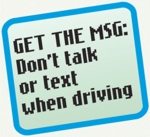Web Usage Dips in 2009: Tied to Unemployment

How much time are you spending online?
There was a very interesting study released by Harris Interactive showing that web users are online an average of 13 hours per week. This is a slight dip from the same observed period in 2008 where they saw average users online for 14 hours per week. The major change? In 2008, 43% of users were online at work. In 2009, that dipped to 40%.
Harris tracks use at home, at work and at what they list as “other location.” Online at Home and Online at Work have both seen Year-Over-Year growth since the study began in 1995, with this being the first year they have seen a dip for the Online at Work category. A simple explanation may be that there are fewer people at work this year then there were last year.Read full post...



















